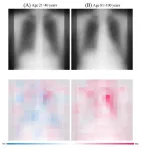(Press-News.org)
Group A streptococci are fairly common bacteria that can cause, among other things, strep throat or impetigo. However, if the bacteria become invasive, the situation can become very dangerous. In this case, the name sometimes changes to murder bacteria or flesh-eating bacteria and can give rise to life-threatening conditions such as blood poisoning and septic shock, or soft tissue infections that may make an amputation necessary.
Invasive streptococcal infections have increased in recent decades. The reason for this is not fully understood.
The outcome of infections can vary considerably, and it is still unknown why certain infected individuals develop life-threatening conditions while others don’t.
“Our hypothesis was that it depends on an interplay between the genes in people and bacteria. Very little was previously known about how different variants of genes in the bacteria and our immune system interact and affect the outcome of infectious diseases,” says Fredric Carlsson, researcher in infection biology at Lund University.
Together with colleagues at, among others, Lund University, Karolinska Institute and Harvard, his research team has over the past five years studied the fundamental biological mechanisms that explain how the potentially aggressive streptococcus bacteria affect people.
The researchers’ hypothesis proved to be correct – the genes are different and that affects the risk of developing serious conditions.
The results, published in Nature Communications, provide a molecular explanation of how group A streptococci give rise to tissue-degrading and life-threatening inflammation.
The study also shows how the severity of an infection depends on the interplay between one gene – STING – in our immune system and a bacterial enzyme found in the bacteria that have become more prevalent in the western world since the 1980s. This explains why some people are more severely affected than others.
A person with the ”bad” gene variant of STING has a 20 per cent risk of having a limb amputated in the event of an invasive infection by the worst bacteria. For people with the ”good” gene variant, the risk is only three per cent. The percentage of patients suffering from septic shock also differs depending on the interplay between our STING variants and the bacteria’s enzyme activity.
“The difference is due to a unique combination of genetic material from the host and pathogen. This is partly due to that fact that the immune system of people with a certain variant of the STING gene triggers a misguided and dangerous inflammatory response. The other factor is that the outcome also depends on whether we are infected by the bacteria that are more aggressive because they have a very active variant of the NADase enzyme. Conversely, normal activation of the immune system due to another STING variant and lower bacterial enzyme activity is associated with protection,” says Fredric Carlsson.
The researchers also studied the evolution of the different STING variants in humans. The results show that the risk variant of STING appeared in humans around 35,000 years ago and that it spread to varying degrees around the world in connection with the first agricultural revolution 10,000 years ago. The consequence today is that the risk variant of STING is more common in some parts of the world than others.
The researchers have not studied the recent outbreaks of streptococcal infections among children in the UK and Denmark. However, a commonly held view is that the increase is a consequence of the pandemic, as countries with a lockdown strategy were subjected to fewer infections than normal, with the result that protection declined among certain groups.
In their continuing work, the researchers will focus on gaining a more detailed understanding of the molecular mechanism by which the bacteria block STING and a normal inflammatory response.
END
Prolonged exposure to low-dose ionising radiation is associated with a higher risk of death from cancer than previously thought, suggests research tracking the deaths of workers in the nuclear industry, published in The BMJ today.
The findings should inform current rules on workplace protection from low-dose radiation, say the researchers.
To date, estimates of the effects of radiation on the risk of dying from cancer have been based primarily on studies of survivors of atomic bombs dropped on Japan at the ...
Access to a smartphone alcohol intervention app helped university students to cut down their overall alcohol consumption and the number of days they drank heavily, suggests a study published in The BMJ today.
Unhealthy drinking is the biggest risk factor to health for 15 to 49-year olds, and unhealthy use of alcohol is especially prevalent among adult students, prompting the authors to design a smartphone app to encourage healthier drinking among this group.
The authors tested the app in 1770 university students who had screened positive for ...
*Please see end of press release for a link to the embargoed content*
Peer-reviewed / Randomised Controlled Trial / People
A randomised controlled trial of 860 women requesting emergency contraception found 95% of pregnancies were prevented following combined treatment with levonorgestrel and the anti-inflammatory medication piroxicam, compared to 63% of pregnancies being prevented when levonorgestrel was taken alone.
This is the first randomised trial where piroxicam has been studied for its contraceptive action in humans.
The authors say, if these results can be reproduced in future studies, co-treatment with piroxicam and levonorgestrel ...
Osaka, Japan - What if “looking your age” refers not to your face, but to your chest? Osaka Metropolitan University scientists have developed an advanced artificial intelligence (AI) model that utilizes chest radiographs to accurately estimate a patient’s chronological age. More importantly, when there is a disparity, it can signal a correlation with chronic disease. These findings mark a leap in medical imaging, paving the way for improved early disease detection and intervention. The results are set to be published in The Lancet Healthy Longevity.
The research team, led by graduate student ...
Epilepsy in infants ranges in severity and can leave caregivers with questions about their child’s health. While genetic testing to help determine the cause of epilepsy is possible, comprehensive testing does not always happen routinely and it can take a long time, leaving families waiting for answers.
Published in The Lancet Neurology, this international study sequenced the genomes of 100 infants with unexplained seizures, along with their parents, from four countries (England, USA, Canada and Australia) to better understand the potential strengths of early, broad genome sequencing (a process ...
The BMJ’s editor in chief is urging the Academy of Medical Royal Colleges and its members to establish a standard for declaring payments they receive from industry and patient groups in the wake of a recent investigation by The BMJ into such payments.
The investigation, published by The BMJ in July,* found that royal colleges, responsible for doctors’ and some other healthcare professionals’ education and training, had received more than £9m in payments from drug and medical device companies since 2015 but that they didn’t always disclose these payments publicly in their annual reports.
In an open letter to the institutions ...
Fresh evidence of ChatGPT’s political bias revealed by comprehensive new study
The artificial intelligence platform ChatGPT shows a significant and systemic left-wing bias, according to a new study by the University of East Anglia (UEA).
The team of researchers in the UK and Brazil developed a rigorous new method to check for political bias.
Published today in the journal Public Choice, the findings show that ChatGPT’s responses favour the Democrats in the US, the Labour Party in the UK, and in Brazil President Lula da Silva of the Workers’ Party.
Concerns ...
An extremely rare collection of 160-million-year-old sea spider fossils from Southern France are closely related to living species, unlike older fossils of their kind.
These fossils are very important to understand the evolution of sea spiders. They show that the diversity of sea spiders that still exist today had already started to form by the Jurassic.
Lead author Dr Romain Sabroux from the University of Bristol’s School of Earth Sciences, said: “Sea spiders (Pycnogonida), are a group of marine animals that is overall very poorly studied.
“However, ...
HOUSTON ― The University of Texas MD Anderson Cancer Center was awarded four grants totaling nearly $4.9 million from the Cancer Prevention and Research Institute of Texas (CPRIT) to support the expansion of physical activity programs for survivors, the dissemination of targeted tobacco cessation programs and the recruitment of a first-time, tenure-track faculty member.
MD Anderson’s Active Living After Cancer (ALAC) program received continued funding from CPRIT via two grants totaling $2,448,643 to ...
The University of Texas at Arlington has launched a new digital parking platform this fall that gives users real-time knowledge of available parking spaces, electric vehicle charging locations and garage/lot percentage occupancy.
The UTA Parking Finder is currently live and enables students, employees and visitors to make informed parking decisions in real time. Additional parking lot parking sensors will be added during the next three years until approximately 85% of all parking space on campus is covered.
The North Central Texas Council of Governments and Modii, a provider of modern mobility solutions, ...




